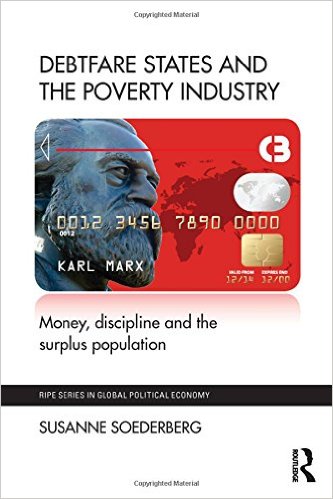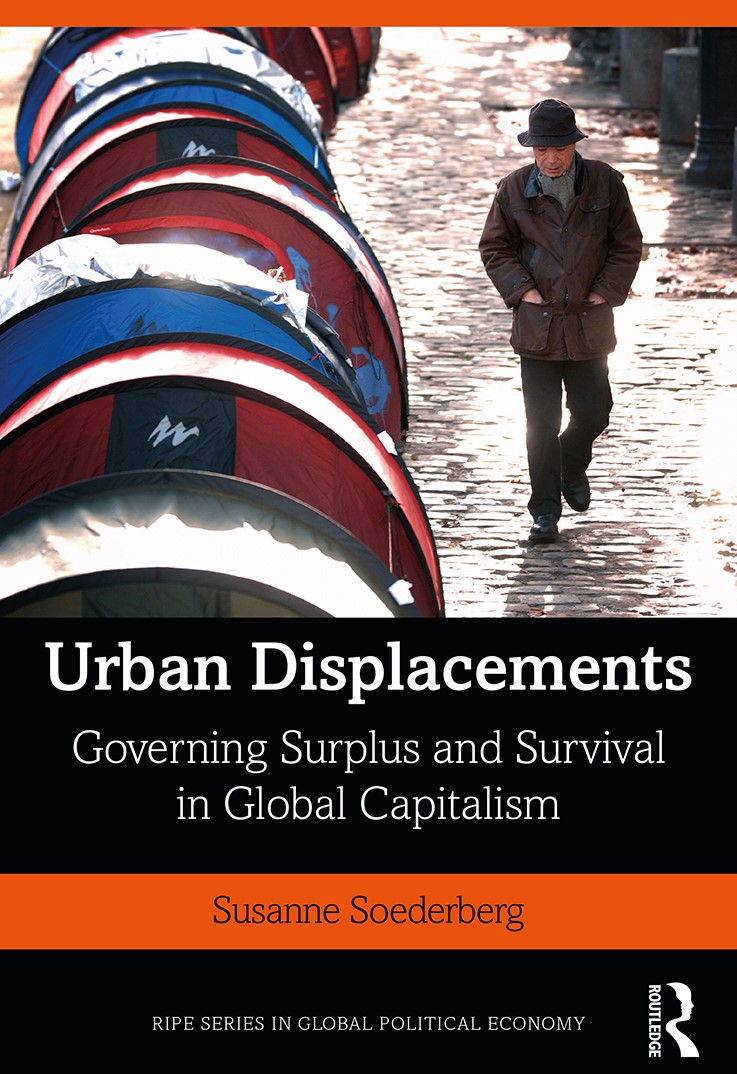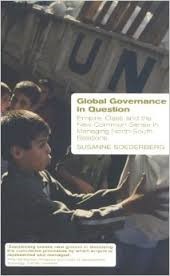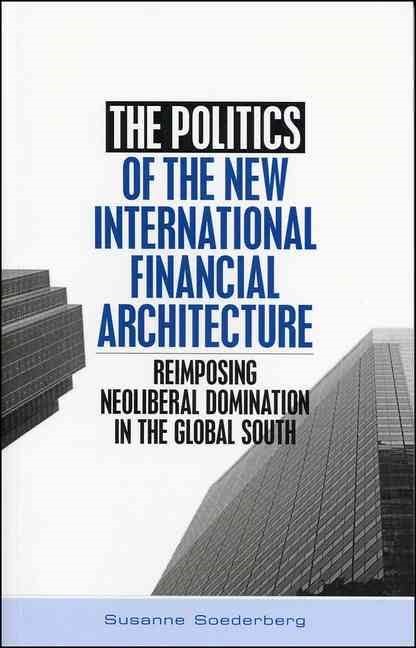
Susanne Soederberg
Professor and Tier I Canada Research Chair in Just and Inclusive Cities
D.Phil (Political Economy), Universität Frankfurt
Mackintosh-Corry Hall, A406
Queen's University
Global Development Studies
Curriculum Vitae (PDF 435 KB)
- Global Political Economy
- Urbanization & Displacements
- Infrastructure
- Global Finance and Debt
- Global Governance
- Business & Development
My research and teaching emphasis is on global political economy (GPE). As GPE is an interdisciplinary approach, I draw on Geography (Urban Studies), Politics (Comparative and International Relations), Sociology (Global Inequality), Gender Studies, and History to make sense of contemporary issues. In so doing, I have tried to debunk a commonly held belief that the economy is a technical issue best left to those with expert knowledge, i.e., economists. One way I achieve this objective is by exploring - both theoretically and empirically - the role of, and intersections between, states (regulation, laws, policies), people (workers, including precarious labour), and money (especially in the form of debt and financial markets). This allows me to interrogate questions of power (e.g., who the power, why the power, and with which consequences the power) as I investigate a range of topics such as: development finance, poverty, neoliberalism, debt (both consumer and sovereign), corporate governance, and global governance across a variety of geographies spanning North America, Western Europe, Latin America and South East Asia.
My previous book, Debtfare States and the Poverty Industry: Money, Discipline and the Surplus Population (2014), interrogates the social power of money and new forms of neoliberal (market-led) governance such as debtfarism. The latter involves rhetorical and regulatory (bankruptcy laws, usury laws, and consumer protection laws) interventions by states to facilitate the growing dependence of the poor on expensive credit to meet basic survival needs. In many ways, debtfarism has become a significant component of neoliberal (market-led) forms of governance in contemporary capitalism. I demonstrate this position by exploring several case studies ranging from credit cards to payday lending and the student loan industry in the United States to micro-lending techniques and low-income mortgages in Mexico.
I my latest book, Urban Displacements: Governing Surplus and Survival in Global Capitalism (2021), provides an empirically grounded analysis of rental housing insecurity in three urban geographies – Berlin, Dublin and Vienna – Debtfare and Displacement sharpens our understanding of the links between low-income rental tenure, neoliberal governance and financial capitalism. Homelessness has reached a crisis point in many European cities and is widely precipitated by the eviction of poor households from rental homes, due to insufficient or irregular income. This book argues that these trends are underpinned by the withdrawal of the state from social housing provisioning alongside the continued expansion of financial capitalism. Building from three signature case studies, the book demonstrates how cycles of overindebtedness, evictions and homelessness transform rental housing insecurity into entrenched urban poverty along class, gendered and racialized lines. In so doing, it provides a new analysis of how monetized power relations draw together landlords, creditors and the state to embed the urban poor more deeply within the financial logics of capitalism. As the book argues, both analytically and empirically, the outcome is the everyday facilitation and normalization of urban poverty and social marginalization.
I particularly welcome applications from graduate students who are interested in conducting research in political economy approaches to various aspects of low-income housing and finance in either the global North or global South. More generally, I am happy to supervise graduate students who are interested in conducting research on various topics listed above. Since I hold two cross appointments, I am able to supervise PhD and MA students in the Department of Political Studies and the Department of Sociology.
Cross Appointed to the Departments of Political Studies and Sociology
Single-Authored Books
Urban Displacements: Governing Surplus and Survival in Global Capitalism. London: Routledge/RIPE Series in Global Political Economy, 2021. *Winner of the 2021 IPEG (International Political Economy Working Group) book prize.
Debtfare States and the Poverty Industry: Money, Discipline and the Surplus Population. London: Routledge/RIPE Series in Global Political Economy, 2014. *Winner of the 2015 IPEG (International Political Economy Working Group) of the British International Studies Association book award. Fully Open Access in 2020.
Scholarly Journal Articles
Relative Surplus Populations in Global Capitalism: Revivals, Revisitings and Recastings,’ Geoforum (with Nicholas Bernards).
‘Global Risk Management and the Davos Consensus: Redesigning the Business of Development,’ Review of International Political Economy (with Sarah Sharma, 50% contribution), Vol. 27(4), 2019, pp. 828-854.
‘Evictions: A Capitalist and Global Phenomena.’ Invited by the Editors to participate on a Forum on ‘Financialisation, Rentier Capitalism and Development’, Development & Change, Vol. 49(2), 2018, pp. 286-301.
‘The Rental Housing Question: Exploitation, Evictions, and Erasures.’ Geoforum, Vol. 89(1), 2018, pp. 114-123.
‘Subprime Housing goes South: Constructing Securitized Mortgages for the Poor in Mexico,’ Antipode: A Radical Journal of Geography, Vol. 47(2), 2015, pp. 481-499.
‘Student Loans and the Commodification of Debt: The Politics of Debtfare, Securitization and the Displacement of Risk,’ Critical Sociology, Vol. 40(5), 2014, pp. 689-709.
Books:




